BRI: the Initiative Angled for Common Development
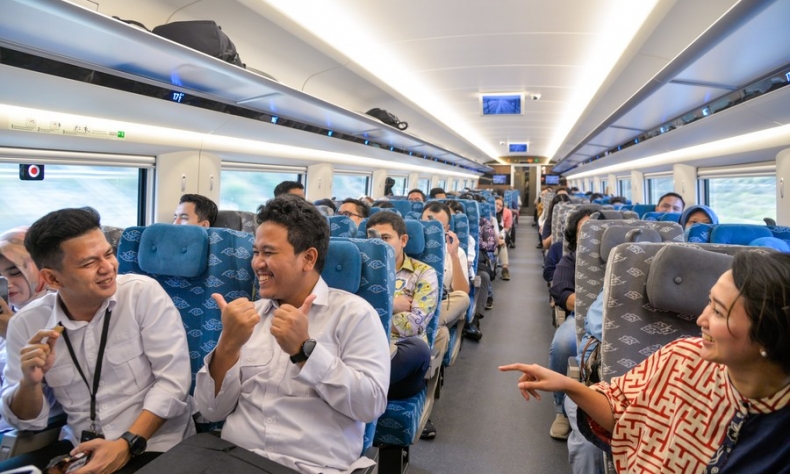
The BRI originates in China, but its achievements and opportunities belong to the world.
This year marks the 10th anniversary of the BRI. Over the last decade, its vision of jointly building a road to prosperity has been translated into actions and tangible results. The BRI has hence emerged as the world’s largest platform for international cooperation, having made significant contributions to building an open world economy and a community with a shared future for humankind. In building the BRI, China has gained development while creating benefits for the world as a whole.
“What has been achieved in the past 10 years demonstrates that the Belt and Road cooperation is on the right side of history. It represents the advancing of our times, and it is the right path forward,” Chinese President Xi Jinping said in his keynote speech at the opening ceremony of the Third Belt and Road Forum for International Cooperation (BRF) held in Beijing on October 18.
Ten years on, the initiative envisions an even brighter future. High-quality BRI cooperation will bring participating countries still more opportunities for development.
Jointly building a community with a shared future for mankind
Belt and Road cooperation carries forward the enduring Silk Road spirit. As President Xi said, “The Silk Road spirit of peace and cooperation, openness and inclusiveness, mutual learning and mutual benefit is the most important source of strength for Belt and Road cooperation.”
The Silk Road embodies an historical heritage shared by countries of Asia, Europe, and Africa and their various peoples of different ethnicities, religious beliefs, and cultural backgrounds. It epitomizes East-West exchanges and cooperation. The aim of Belt and Road cooperation is to carry forward and promote the Silk Road spirit, rekindle vivid human memories of the prosperous ancient Silk Road, and create its brilliance in the new era. This aligns with the Chinese nation’s long-held values of world harmony and long-lasting peace, and also accords with the trend of the times, namely peace, development, and win-win cooperation.
Belt and Road cooperation constitutes a Chinese solution to current challenges. Both problem- and action-oriented, its aim is to address common challenges that nations of the world now face, and which are evident in the growing deficits in development, security, and governance.
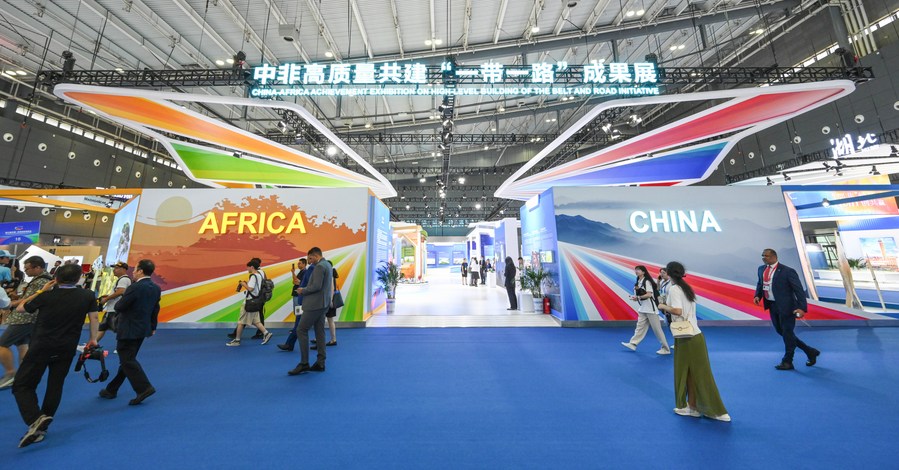
As the world’s second largest economy, China endeavors to maintain much more than simply its own development. The country has hence proposed a wide range of Chinese initiatives and proposals whose fresh insights into problem-solving and revitalizing development may, at this critical juncture, guide the international community’s way forward. The goal of the BRI and Global Development Initiative is to build a community with a shared future for mankind. The approach to resolving global development challenges in this regard is to enhance infrastructure interconnectivity by building interconnected and unimpeded veins and arteries that will achieve economic globalization and realize a world economic recovery and rebalance. The proposed role of the Global Security Initiative is to tackle the security challenges that nations of the world now face, but through dialogue rather than confrontation, partnerships rather than alliances, and win-win cooperation rather than zero-sum games. The Global Civilization Initiative is a response to the conflict of ethics existent in the international community. It advocates the common values of humanity, harmonious co-existence, and mutual learning among different civilizations. Of all these Chinese solutions, the BRI was the first, and the one that has borne the most fruit. It hence provides a solid foundation for the implementation of other global initiatives.
Belt and Road cooperation is now joining forces with China’s modernization drive. “The modernization we are pursuing is not for China alone, but for all developing countries through our joint efforts,” President Xi said. In essence, the BRI offers the means to accomplish common modernization of huge populations along a peaceful development path. Its goal matches that of China’s modernization drive, that is, to achieve common human prosperity, coordinated material and cultural-ethical progress, and man’s harmonious co-existence with nature.
China’s modernization drive thus aligns with the BRI, so rendering them mutually supportive. Under the BRI framework, China’s modernization drive is committed to the greater good and shared interests. It enables the domestic and international cycles to complement one another’s economic development along a path that is open, green and innovation-driven, so creating benefits for the peoples of both China and BRI countries.
All-round connectivity
The past ten years of the BRI’s joint construction have promoted all-round, multi-field connectivity. Over the past decade, China has enhanced policy coordination, infrastructure connectivity, unimpeded trade, financial integration, and closer people-to-people ties. Its aim has been to broaden areas of cooperation with infrastructure connectivity as the main direction, rules and standards as the key support, and people-to-people exchanges as the foundation.
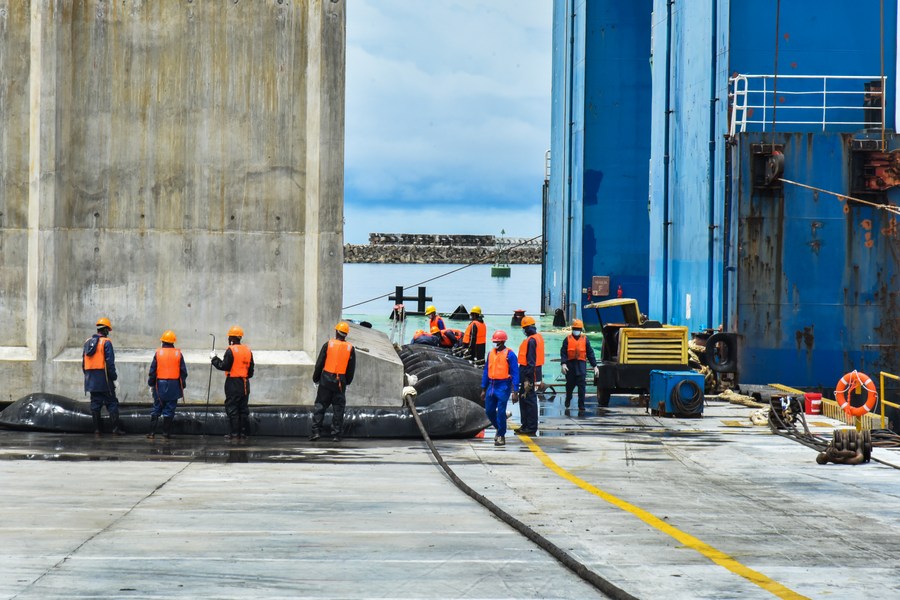
As regards policy coordination, more than 150 countries and over 30 international organizations have signed Belt and Road cooperation documents, three sessions of BRF have been held, and over 20 specialized multilateral cooperation platforms under the BRI established. As regards infrastructure connectivity, a number of landmark projects – such as the China-Laos Railway, Jakarta-Bandung High-Speed Railway, Hungary-Serbia Railway and Piraeus Port — have been completed and put into operation. They now form a fundamental transportation pattern that spans land, oceans, the sky, and the Internet. In regard to trade, between 2013 and 2022 the total import and export volume between China and its BRI partner countries reached US $19.1 trillion, while cumulative two-way investment exceeded US $380 billion. Meanwhile, China has successfully held five sessions of the China International Import Expo (CIIE), and signed 21 free trade agreements with 28 countries and regions. As to finance, the establishment of the Asian Infrastructure Investment Bank (AIIB) and the Silk Road Fund gave rise to a long-term, stable, sustainable, risk controllable investment and financing system. This paved the way towards extensive people-to-people and educational exchanges, cultural and tourism cooperation, and media and think tank cooperation.
Having steadily dissolved the bottlenecks inhibiting construction of infrastructure and industrial development in developing countries, this decade-long joint construction has generated fresh momentum towards global development. The many infrastructure and production capacity cooperation projects implemented in host countries have improved local production and living conditions, and hence people’s well-being. They have also generated revenues and employment opportunities, and enhanced such countries’ innate development capacities.
Under the background of various anti-globalization trends, such joint construction is committed to expanding the overall global demand and sharing China’s development opportunities with the world. Its aim is to help the world economy achieve interconnected development by jointly “making the cake bigger,” rather than engaging in a zero-sum game, and building a global development pattern that features inclusive, coordinated, win-win cooperation and common prosperity. This approach of seeking “common development” rather than “trade wars” is China’s responsible response to current global changes. It signifies China’s steady advance from the ranks of participants in economic integration to a builder and leader of an open world economy.
The past decade has engendered a new solution to improved global governance. As President Xi stated, “Belt and Road cooperation is based on the principle of ‘planning together, building together, and benefiting together.’ It transcends differences between civilizations, cultures, social systems, and stages of development. It has opened up a new path for exchanges among countries, and established a new framework for international cooperation. Indeed, the BRI represents humanity’s joint pursuit of development for all.”
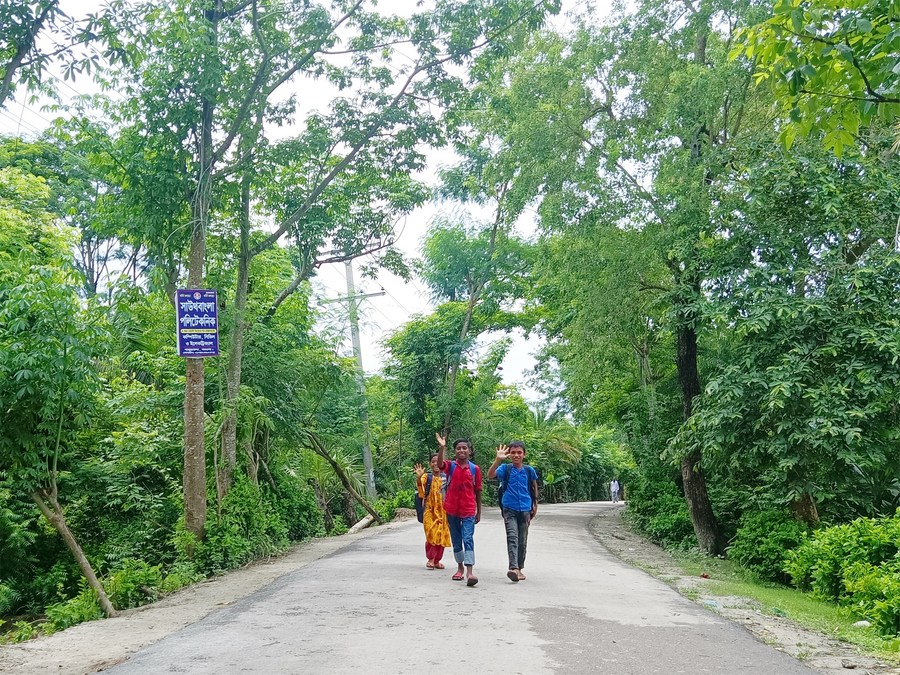
Over the past decade, China has upheld multilateralism in all respects, putting into practice the global governance concept of planning together, building together, and benefiting together. It has also adhered to the principle of dialogues instead of confrontations, tearing down instead of building walls, integration instead of decoupling, and inclusiveness instead of exclusion. China has, in effect, promoted a global governance system that has a more just and reasonable trajectory.
Such joint construction gives greater voice in global economic governance to developing countries and emerging economies by providing them with more space on the global governance agenda to express their concerns and demands. China and the other countries involved have jointly researched and created rules that address new issues.
Pursuing steady and sustained progress
In light of unprecedented and profound changes, we must ensure high-quality BRI cooperation. Ten years of practice show that this cooperation constitutes a main path towards a community with a shared future for mankind that imbues resilience and broad prospects.
The evolution of profound changes, manifest in frequent geopolitical conflicts and slow global economic recovery, has taken the world to a new period of turbulence and transformation. Humanity consequently now faces unprecedented common challenges. At this crossroads, the value of high-quality BRI cooperation becomes ever clearer. It is indeed an historical undertaking that merits China and all its partner countries’ continuous efforts.
As President Xi Jinping stated, “China will work with all parties involved to deepen Belt and Road partnerships of cooperation, usher this cooperation into a new stage of high-quality development, and make relentless efforts to achieve modernization for all countries.” Important guiding principles for high-quality Belt and Road cooperation have been laid down. They include the principle of, “planning together, building together, and benefiting together,” the philosophy of open, green, and clean cooperation, and the goal of pursuing high-standard, people-centered, and sustainable cooperation.
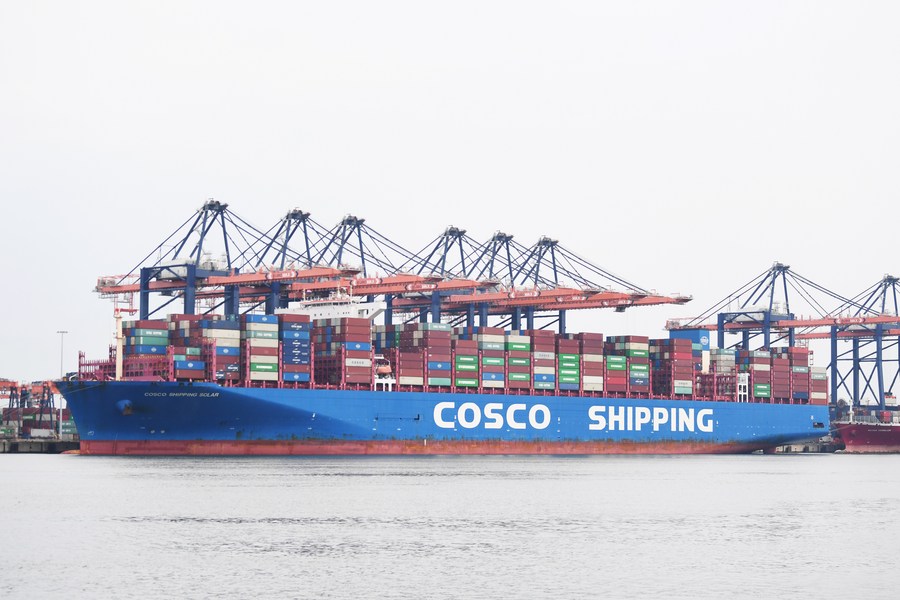
China will take eight major steps to support the joint pursuit of high-quality Belt and Road cooperation. They are: First, building a multidimensional Belt and Road connectivity network; second, supporting an open world economy; third, carrying out practical cooperation; fourth, promoting green development; fifth, advancing scientific and technological innovation; sixth, supporting people-to-people exchanges; seventh, promoting integrity-based Belt and Road cooperation; and eighth, strengthening institutional building towards international Belt and Road cooperation.
As the master plan for opening-up and cooperation with foreign countries, the high-quality Belt and Road cooperation will enable China’s greater scope of opening up to the outside world, in broader fields and on deeper levels, so providing the world with new opportunities by virtue of China’s new development.
Today’s China is both a world factory and a world market. Through trade promotion platforms, such as the China International Import Expo (CIIE) and Silk Road e-commerce, China will open up a green channel for partner countries to export to China that will drives the development of their advantageous industries and trade growth. China’s focus will be on post-pandemic economic recovery, and green and low-carbon development in such key areas as green energy, green infrastructure, green transportation, and green finance. This will deepen international cooperation in ecological environment and climate governance.
A new round of global technological revolution and industrial transformation is well underway. Therefore, China will also work with its partner countries to explore cooperation potential and growth points in a bid to better serve the industrialization, urbanization, and modernization processes of the related countries. The BRI originates in China, but its achievements and opportunities belong to the world. We also have reason to believe that this international public good will continue to illuminate the future of humankind.
Zou Lei is director of Opening-up Strategy Research Center of Shanghai Party Institute of CPC.
 Facebook
Facebook
 Twitter
Twitter
 Linkedin
Linkedin
 Google +
Google +










